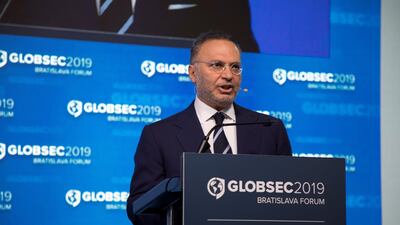Sudan's military rulers and protest leaders have agreed to resume talks on forming a transitional administration, a softening of positions by the two sides more than a week after security forces violently dispersed a sit-in protest in the capital Khartoum that left scores dead and led to the collapse of negotiations.
An Ethiopian envoy, Mahmoud Dirir, told reporters in Khartoum on Tuesday night that the military, as a confidence-building measure, has agreed to release opposition politicians it has detained since the June 3 dispersal of the sit-in protest.
On their part, the protest leaders have ended the civil disobedience and general strike that began on Sunday to pressure the generals to cede power to a civilian-led government. They, however, encouraged followers to remain mobilised for further action and, reflecting the distrust between the two sides, said the suspension of the strike was not linked to any political developments. No date has been set for the resumption of talks.
The United Arab Emirates, which traditionally maintains close relations with Sudan, welcomed news of the resumption of talks.
Dr Anwar Gargash, the UAE's Minister of State for Foreign Affairs, said he hoped the talks would produce an enduring agreement. "The current detente in Sudan calls for optimism and we call for the establishment of an agreement leading the transition through a real and stable partnership," he tweeted.
The UAE has consistently supported talks in Sudan since authoritarian leader Omar Al Bashir was removed by the military two months ago. Together with Saudi Arabia, the UAE provided Sudan with an emergency $3 billion aid package soon after Mr Al Bashir's removal to support the impoverished nation. Dr Gargash has sought to distance the UAE from Sudan's domestic affairs, saying the direction taken by that country "after 30 years of military, Muslim Brotherhood dictatorship" is an internal Sudanese affair.
Representing Ethiopian Prime Minister Abiy Ahmed, Mr Dirir said the generals have also agreed to recognise agreements reached with the rebel leaders during weeks of intermittent negotiations after they declared them void following the June 3 violence and the crackdown that followed.
These agreements include a three-year transitional period and allocating two thirds of 300 seats in a proposed legislature to the Forces of Freedom and Change, an umbrella group of political parties and trade unions that has negotiated with the military on behalf of protesters.
Prior to the violence of June 3, the talks between the two sides had foundered over whether civilians or the military should lead and dominate a proposed sovereign council, which would operate as a collective presidency during the transitional period. One proposal floated by the Ethiopian envoy, according to activists, is that civilians should be given eight of the council's 15 seats, with the remainder going to the military. The council will have a rotating presidency, they said.
The apparent softening of the two sides’ positions comes amid growing international concern over the future of Sudan two months after the military removed longtime authoritarian leader Omar Al Bashir. His removal followed four months of deadly street protests against his 29-year rule that were initially sparked by shortages and surging prices of basic items including bread and fuel.
The UN Security Council on Tuesday issued a statement urging all sides to "work together for a consensual solution to the current crisis."
The same day, the United States said it was dispatching to Khartoum its top diplomat for Africa, Tibor Nagy, to urge both sides to resume talks.


